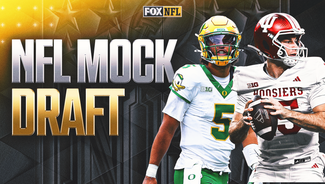
Poster latest show of NFL concussion reality
The HBO cameras are rolling in New York, where this season's ''Hard Knocks'' could make a star out of Jets coach Rex Ryan - and send parents across the country scurrying for the mute button on the remote control.
Then there's Cincinnati, where the T.O. & Ochocinco Show promises to be must-see reality of its own.
NFL training camps are opening across the country this week, much to the delight of football-starved fans. Along with the fun this season, though, comes a serious message about a serious issue the NFL tried for way too many years to ignore.
''Repetitive brain injury, when not treated promptly and properly, may cause permanent damage to your brain,'' warns a new poster that will be displayed in all 32 NFL locker rooms.
Quite a change from just a few years ago, when the NFL all but dismissed mounting concerns about concussions and their long-term effects. The league even trotted out doctors to say there was no definitive connection between concussions and brain damage.
Now players have the information right in front of them: Concussions can lead to everything from memory loss to depression to dementia.
''It's a leap forward and it doesn't hold anything back,'' said Chris Nowinski, a former college football player and professional wrestler who helped with the poster. ''It clearly is a change in the thinking of the NFL.''
That change in thinking came under new commissioner Roger Goodell, who should get at least part of the credit for recognizing the problem and dealing with it. Though the change came grudgingly at first, the NFL now appears serious about trying to do something about what was one of the dirty little secrets of professional football.
It won't help players from the past who died young or were left brain-damaged because of repeated concussions. But it might save some lives and a lot of pain for players in the future.
''I'm excited we're all moving in the same direction finally,'' said Nowinski, president of the Sports Legacy Institute and co-director of the Center for the Study of Traumatic Encephalopathy at Boston University. ''I think the commissioner has made consistently great moves on this.''
Goodell may not have had much choice. There was a growing amount of evidence on the effects of repeated concussions that was hard to ignore, and public campaigns by the families of former players were taking their toll.
Politicians were also getting involved.
''The NFL has had its four stages of grief: denial, more denial, some level of recognition and now research,'' New York congressman Anthony Weiner said at a hearing in May.
To Goodell's credit, he's now moving fast on an issue that effects millions of young athletes and is even more critical in a league built largely on the excitement of violent collisions.
Shortly after a survey of 160 NFL players by The Associated Press last season showed nearly one-fifth had either hidden a concussion or played while under the effects of one, Goodell issued stricter instructions for when players would be allowed to return to games or practices after head injuries.
Then a few more things happened. Two doctors whom critics accused of trying to help the NFL minimize the affects of concussions resigned from a medical committee, and the league started a database on concussion injuries. At the scouting combine this year, all 329 players were given a baseline brain activity exam for the first time.
Meantime, the NFL donated $1 million to the Boston University center - with no strings attached - to help researchers study the affects of brain injuries. More than 200 athletes from various sports have pledged to donate their brains to the center for study, including Baltimore Ravens center Matt Birk, Seattle Seahawks linebacker Lofa Tatupu and Arizona Cardinals receiver Sean Morey.
''It's been a huge problem for decades, but never have there been scientists who have committed to solve the problem,'' said Nowinski, who suffered six concussions in his career. ''Now that we have those resources I expect huge advances.''
The poster is a small part of the overall picture, but an important one. Whether players take it to heart is still to be determined; at least the message is in place.
It's a serious subject, as the heart-wrenching stories told by former players and their family members before Congress last year demonstrated. The fact the NFL took so long to recognize it as such is a disgrace.
Now the league has a second chance. As a result, players may live longer and more productive lives because of it.
----
Tim Dahlberg is a national sports columnist for The Associated Press. Write to him at tdahlberg(at)ap.org










